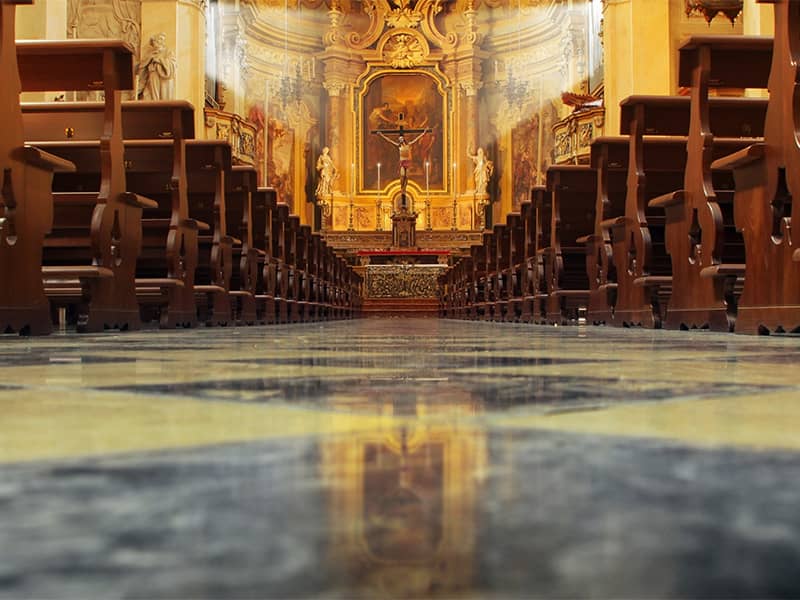The Conference of Major Superiors of Men, an association of the heads of religious orders including the Jesuits and Franciscans, will dedicate part of its annual meeting in Philadelphia this week to the abuse crisis.
Their approach is expected to differ from that of the bishops, who agreed in June to remove abusers from all church work - anything from teaching in parochial schools to serving in a Catholic soup kitchen. The prelates also said they would likely seek to oust some offenders from the priesthood.
Religious orders will bar guilty priests from ministries involving face-to-face contact with parishioners, but they plan to find some role for the men, in administrative jobs far from young people, said the Rev. Ted Keating, a Marist priest and the conference executive director.
By allowing offenders to remain clergymen, the orders feel they are keeping a commitment to support their priests throughout life. Priests take a vow of poverty when they join religious communities. "We have a family dimension. If a man is sick, he's still one of us, and often, these men are very sick," Keating said.
Mark Serrano, of the Survivors Network of Those Abused by Priests, fears that allowing the men to continue working for the church, even in administrative jobs, could put minors at risk. He accused religious communities of protecting abusers at the expense of children. "They have an even more secret culture than diocese priests," Serrano said.
About 15,000 of the 46,000 priests in the United States belong to religious orders. One-third work in parishes, another third work as hospital chaplains, in schools or in other ministries, while the remainder work in administrative jobs or are retired.
Under church law, bishops have authority over religious-order clergy serving within a diocese, and the orders agreed several years ago to notify bishops if a problem priest was being sent to work in their area. Dozens of the estimated 300 clergymen taken off duty this year because of abuse claims are members of religious communities. A goal of the meeting is to clarify abuse policies for the rest of the order priests, but that will be tricky because of the church's structure.
The hundreds of religious communities in the United States are autonomous, with individual headquarters in Rome and, unlike dioceses, they have no geographic boundaries, spanning states and several countries. Victim groups complain that some offenders have been sent overseas to avoid punishment in the United States.
Also, the Conference of Major Superiors does not have the same authority as the United States Conference of Catholic Bishops to set policies meant to be binding nationwide. "It's a whole other chain of command and it is far more complicated than the simple chain of the bishops and the priests," said John Feister, assistant editor of the Franciscan magazine St. Anthony Messenger.
Many religious orders began formulating sex abuse policies of their own in the early 1990s, after scandals in dioceses drew national attention to the problem. But religious communities have had their own crises as well. In 1993, a review board concluded that 11 friars had sexually abused 34 boys over two decades at St. Anthony's Seminary in Santa Barbara, Calif., which is run by the Franciscans of California. One of the victims won a $1.7-million settlement.
The Benedictine St. John's Abbey in Collegeville, Minn., revealed that 11 monks had admitted to abuse and three others had been accused. All were placed under work restrictions. A handful of lawsuits are pending.
This week, several troubling issues await attendees at the national meeting, including what to do with abusive priests who will remain in their orders. The Rev. Canice Connors, president of the Conference of Major Superiors, said the orders will consider founding residences for priests accused of abuse. And Keating said the conference will explore the idea of creating lay review boards and outreach programs for victims. The meeting begins with a banquet Wednesday night and runs through Saturday. "When this issue came up in the early 1990s, it was go and do your work, set up your policies," Keating said. "We will be looking at ways we can hold ourselves publicly accountable."

